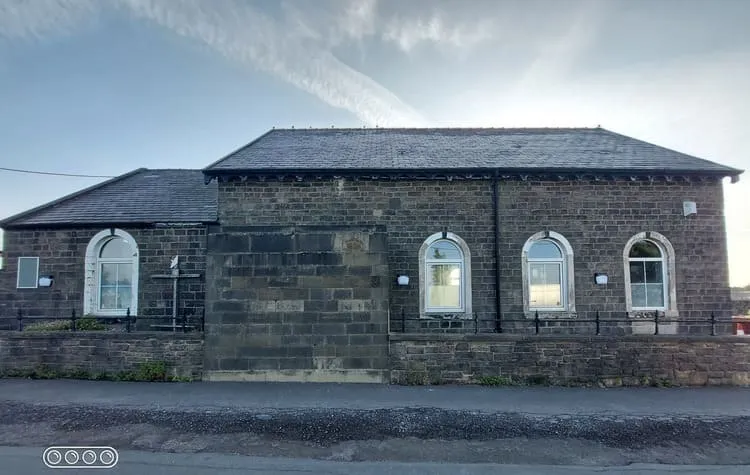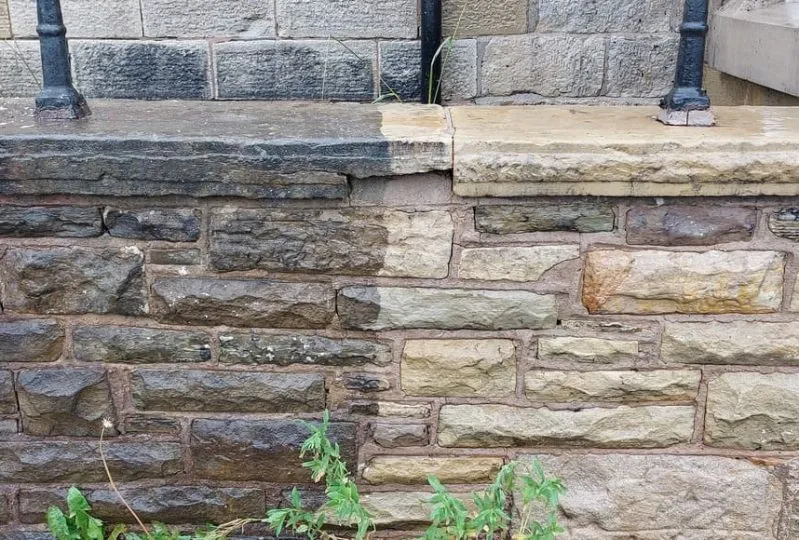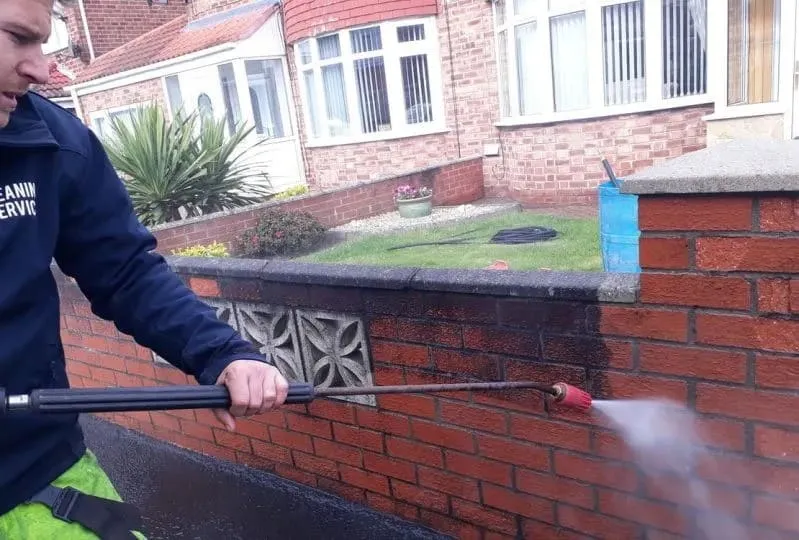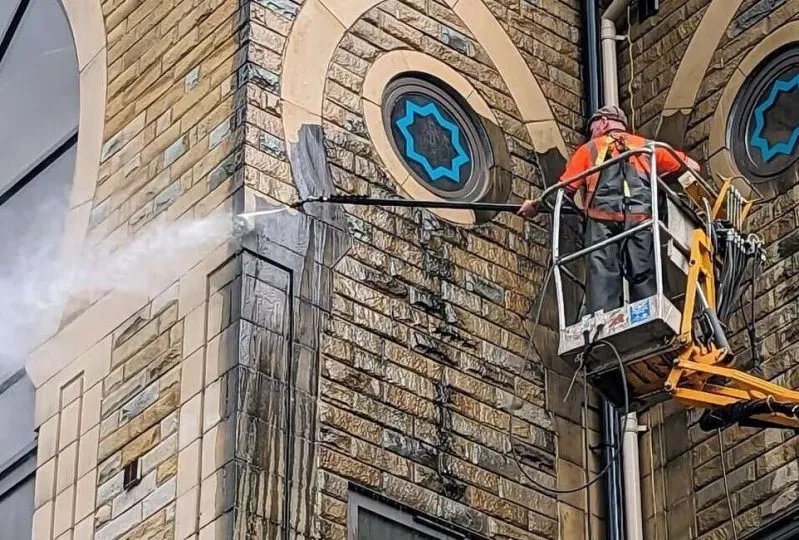Brickwork is a classic feature of British architecture, adding both charm and durability to homes all over the country. But there’s one thing that often gets forgotten by property owners: regular cleaning.
In this article, we’ll talk about why keeping your bricks clean is more important than you might think and how it can help prevent serious structural issues down the line.
Understanding Brickwork and Its Vulnerabilities
To appreciate why regular cleaning is crucial, we must first understand the materials involved and their inherent vulnerabilities.
Composition of Brickwork:
British brickwork usually includes fired clay bricks joined by mortar, which is a blend of cement, sand, and water. While this setup is pretty solid, it’s not completely immune to the weather. Bricks are porous, meaning they can soak up and let go of moisture. This can be a good thing in some conditions but can also lead to problems, depending on the weather and other environmental factors.
Common Vulnerabilities:
Your home’s brickwork faces several challenges due to the country’s climate and environmental factors:
- Water Absorption: Bricks tend to soak up water, which can cause problems when it freezes and expands during winter. This freeze-thaw cycle can lead to cracks and chipping.
- Moss and Algae Growth: The damp weather here is perfect for moss and algae to grow. These organisms can trap moisture against the brick and gradually damage the mortar joints.
- Efflorescence: That white, powdery stuff you sometimes see on bricks is called efflorescence. It’s caused by salts coming out of the bricks as moisture evaporates. While it’s usually not harmful, it can indicate there’s too much moisture in your brickwork.
- Air Pollution: Particularly in urban areas, air pollutants can settle on brickwork, potentially reacting with the brick surface and accelerating wear.
- Mortar Degradation: Over time, mortar can erode due to weathering, leaving gaps that allow water ingress and further damage.
How Dirt and Debris Contribute to Structural Problems
While a bit of dirt might seem harmless, the accumulation of grime and debris on brickwork can lead to significant structural issues over time.
Impact of Accumulated Dirt:
Accumulated dirt on your brickwork can be quite problematic. When dirt builds up, it effectively traps moisture against the bricks, leading to several issues:
- Increased Water Absorption: Bricks covered in grime soak up more water, which makes them more vulnerable to damage from the freeze-thaw cycles typical of winters.
- Chemical Reactions: Dirt often contains pollutants that can interact with the brick surface, potentially leading to discolouration and erosion over time.
- Masking of Underlying Issues: A layer of dirt can hide early signs of brick damage, preventing timely interventions.
Growth of Vegetation:
Britain’s damp climate provides ideal conditions for organic growth on brickwork. While it might add a quaint, rustic charm, vegetation can cause serious damage:
- Moss and Algae: Already discussed above.
- Lichen: Though slow-growing, lichen can penetrate the surface of bricks and mortar, causing gradual deterioration.
- Ivy and Climbing Plants: While picturesque, these can force their way into small cracks, widening them over time and potentially compromising the structure’s integrity.
- Root Systems: Even small plants can develop root systems that penetrate mortar joints, leading to water ingress and further damage.
The presence of dirt and organic matter creates a cycle of damage: they retain moisture, which in turn creates a more hospitable environment for further growth, leading to increased retention of dirt and debris.
Benefits of Regular Brick Cleaning By Professionals
Regular brick cleaning is a crucial aspect of property maintenance that offers numerous benefits.
Prevention of Mould and Algae:
- Structural Protection: Eliminating these organisms, you prevent them from penetrating and weakening the mortar and brickwork.
- Aesthetic Improvement: Clean bricks maintain original charm and character of your property, enhancing its kerb appeal.
Removal of Harmful Debris:
- Reduced Chemical Damage: Cleaning removes pollutants and acidic substances that can react with and deteriorate brick surfaces over time.
- Prevention of Staining: Regular cleaning prevents dirt and pollutants from causing permanent discolouration or staining of the brickwork.
- Improved Breathability: Clean bricks can ‘breathe’ more effectively, allowing for better moisture regulation and reducing the risk of trapped dampness.
Preservation of Structural Integrity:
- Early Problem Detection: Regular cleaning allows early identification of cracks, spalling, or other structural issues that might otherwise go unnoticed.
- Prolonged Lifespan: By preventing accumulation of damaging substances, regular cleaning can significantly extend the life of your brickwork.
- Frost Damage Prevention: Clean bricks are less likely to retain excess moisture, reducing the risk of freeze-thaw damage during British winters.
Additional Benefits:
- Cost-Effective Maintenance: Regular cleaning is far less expensive than major repairs or brick replacement that might be necessary if problems are left unchecked.
- Increased Property Value: Well-maintained brickwork can enhance the overall value of your property, a crucial factor if you intent to sell the place.
Recommended Cleaning Frequency
There is no one-size-fits-all approach, understanding the factors that influence cleaning needs can help you make informed decisions.
Factors Affecting Frequency:
- Local Climate: Britain’s diverse weather conditions play a significant role. Properties in rainy regions like Wales or Scotland may require more frequent cleaning than those in drier areas.
- Proximity to Urban Centres: Buildings in cities like London or Manchester, exposed to higher levels of pollution, may need more regular cleaning than rural properties.
- Surrounding Vegetation: Properties with overhanging trees or in areas with dense foliage may require more frequent cleaning due to increased organic debris.
- Brick Type: Some types of brick are more porous or textured, potentially requiring more frequent attention.
- Building Orientation: North-facing walls, which receive less sunlight and stay damper, may need more frequent cleaning to prevent moss and algae growth.
- Age of the Property: Older buildings might require more frequent inspections and cleaning due to natural wear and weathering.
General Guidelines:
While specific needs vary, here are some general recommendations for brick cleaning frequency in the UK:
- Annual Inspection: At minimum, conduct a thorough visual inspection of your brickwork annually, preferably in spring after the winter months.
- Cleaning every 3-5 Years: For most residential properties in average conditions, a professional clean every 3-5 years is often sufficient.
- Biennial Cleaning for Urban Properties: Buildings in urban areas or those exposed to higher pollution levels may benefit from cleaning every 2 years.
- Spot Cleaning: Address localised issues like bird droppings or isolated algae growth promptly as they occur.
Brick Cleaning Methods
Pressure Washing:
Pros:
- Highly effective for removing stubborn dirt and grime
- Relatively quick and can cover large areas efficiently
Cons:
- Can damage mortar joints if used incorrectly
- May force water into the brickwork, leading to potential moisture issues
Caution: Use only with appropriate pressure settings and by experienced operators to avoid brick and mortar damage.
Chemical Cleaners:
- Acidic Cleaners:
Pros: Effective for removing mortar stains and efflorescence
Cons: Can etch bricks if not used properly; might be harmful to surrounding vegetation
- Alkaline Cleaners:
Pros: Good for removing organic matter and general dirt
Cons: May require longer dwell times; can be less effective on mineral stains
- Neutral Cleaners:
Pros: Gentler on brickwork; suitable for regular maintenance cleaning
Cons: May not be as effective on heavy staining or built-up grime
Always test cleaners on a small, inconspicuous area first and follow manufacturer’s instructions carefully.
Professional vs. DIY:
Consider professional cleaning when:
- Dealing with historic or listed buildings
- Addressing extensive or stubborn staining
- Lacking experience with brick cleaning methods
- Working on tall or difficult-to-access areas
DIY cleaning may be suitable for:
- Nominal cleaning of easily accessible areas
- Minor staining or dirt accumulation
Professional Tip: Even if opting for DIY, consider consulting a professional for advice on the best methods and products for your specific brickwork.
Signs That Your Brickwork Needs Cleaning
Recognising when your brickwork requires cleaning is crucial for maintaining your property’s appearance and structural integrity.
Visual Indicators:
- Discolouration:
- Darkening or blackening of bricks, especially on north-facing walls
- Green or black patches indicating algae or mould growth
- White, powdery deposits (efflorescence) suggesting excess moisture
- Stains:
- Rust-coloured stains from metal fixtures or pollution
- Dark streaks under windowsills or along mortar joints
- Bird droppings or other organic matter accumulation
- Organic Growth:
- Moss or lichen spreading across the brickwork
- Small plants or weeds growing from mortar joints
- Dirt Build-up:
- A general dulling of the brick’s natural colour
- Visible layers of grime, particularly in sheltered areas
Structural Symptoms:
- Cracks:
- Fine cracks in bricks or mortar joints
- Larger fissures that may indicate more serious structural issues
- Bulging:
- Areas where bricks protrude from the wall’s surface
- Bowed or curved sections in the brickwork
- Mortar Deterioration:
- Crumbling or receding mortar between bricks
- Gaps or holes in the mortar joints
- Spalling:
- Flaking or peeling of the brick surface
- Small chunks of brick falling away
- Damp Patches:
- Persistent dampness on interior walls corresponding to exterior brickwork
- Dark, damp patches on the exterior, particularly after rainfall
Final Words
The brickwork of your property forms a crucial part of its structure and aesthetic appeal. Throughout this guide, we’ve discussed how regular cleaning plays a vital role in preserving its integrity and extending its lifespan.
Prevent costly damage and keep your brickwork looking its best.
Ready to protect your property? Schedule a professional brick cleaning today!
Contact us now for a free estimate!










